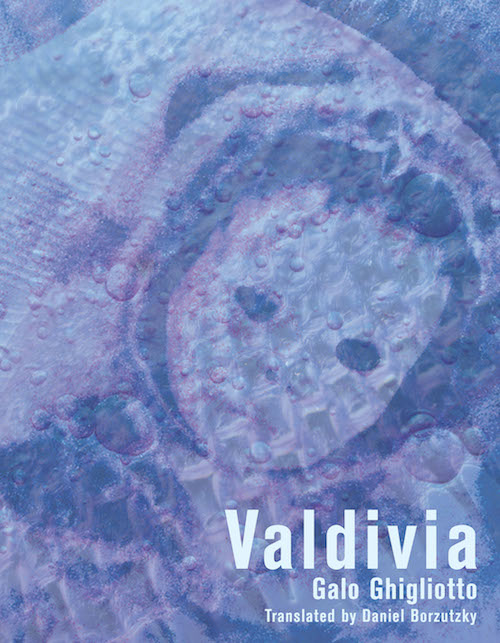Alexis Almeida Reviews Daniel Borzutzky's Translation of Valdivia, by Chilean Poet Galo Ghigliotto

At Asymptote, new reviews of work in translation, including translator and poet Alexis Almeida on Chilean author Galo Ghigliotto's Valdivia, translated by Daniel Borzutzky (co • im • press, 2016). "How does Valdivia—Ghigliotto’s birthplace and a city due south of Santiago—coincide with Valdivia, the realm of crossed memories, ghosts, mythical spirits, remnants of physical and psychic violence?" More about this book:
Valdivia does speak to this duality: the inescapability of the present, and the histories written into the present, set against language’s capacity to rewrite and rearrange those histories. The book suggests that this is one of poetry’s great means of resistance. Set within the context of Pinochet’s dictatorship, the persecution of thousands of Chileans, and the violence and torture endured by many, Ghigliotto’s poems illustrate the far reaches of this violence and its many reverberations—from the domestic violence in his own home (“my father with his / belt hanging from his right hand”) to the political inheritance of violence (“there is the sound of a head exploding / i was born a bullet and i came out of my mother’s mouth”) and the violence endemic to the landscape. This last instance, in Valdivia’s case, is a violence inherent in the water—one of Valdivia’s defining characteristics is its abundant rainfall and deep lakes—, its uncontainable quality and its proximity to death: “for me / Valdivia is the dead’s drowning / in the pampas grass on the edge of the river / Valdivia is floating white dresses / parading on the river / following the flow / for me Valdivia / is a house that over and over again / goes up in flames and is extinguished / for no reason.”
But something particular to water in Valdivia is that it cannot fully be absorbed into either “side;” that is, it cannot be harnessed as a weapon or tool of suppression, and it cannot be used as a barrier or source of protection. It is not solely an emancipatory force. It simply is. It exists everywhere: inside bodies, within geographies, inside textual relationships (the metaphoric, the metonymic, etc.). It is essential to the functioning of all things and all relationships. It carries contradictions and moves between them. In this sense, water, as both a stylistic texture and a geographic reference point, becomes a kind of ethics for the book: a constant transporting and repositioning, guiding things toward and away from “the rite of quotidian pain.”
Daniel Borzutzky, who translated Valdivia from the Spanish to the English, recently said in an interview with PBS: “poetry creates a historical memory of our time,” and the book is very much a testament to this idea...


